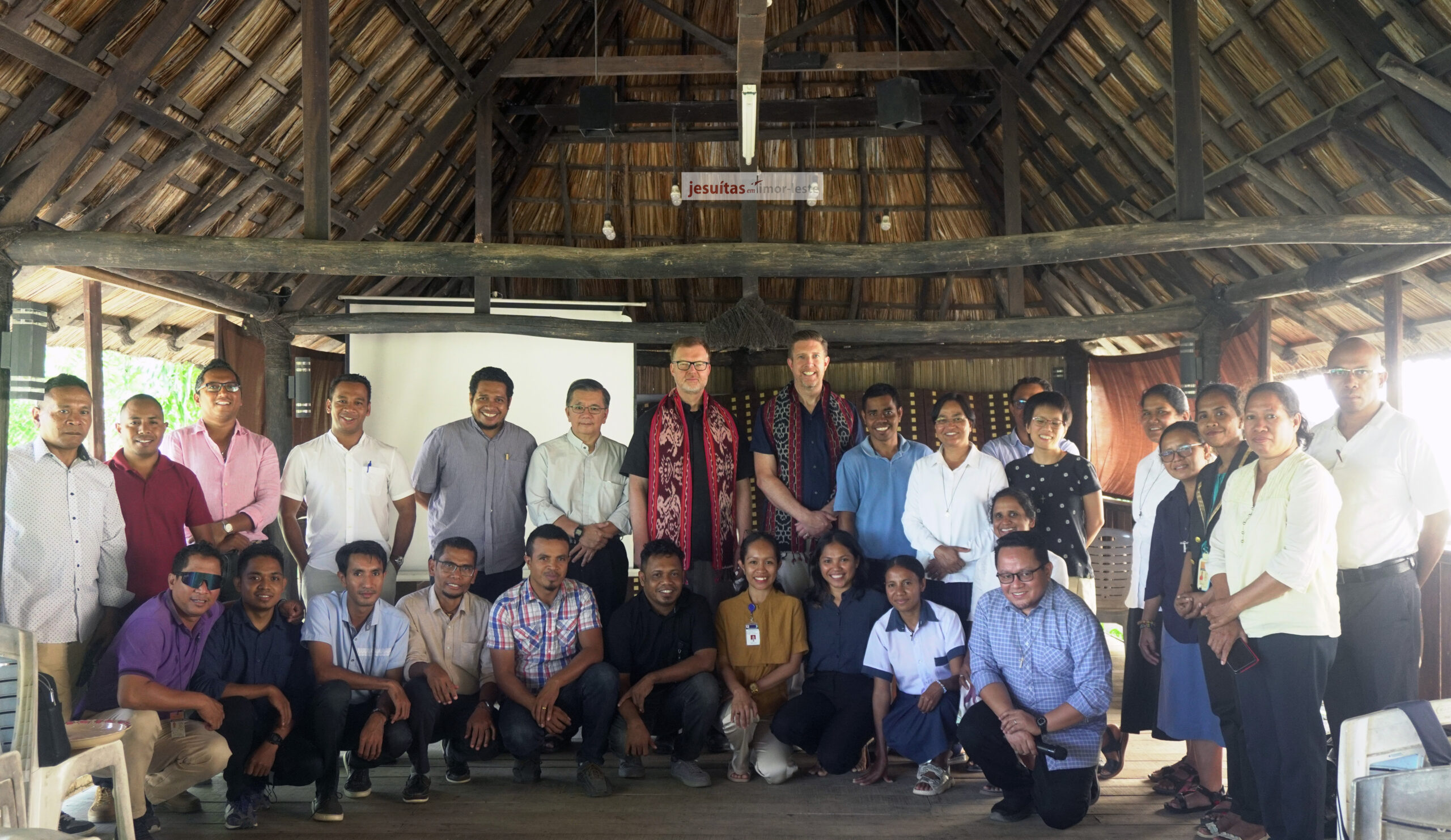As Mr. Simon Davies, JCAP Conference Delegate for Safeguarding, explained, “Safeguarding it’s not only written document that you need to do for your institution, but it’s a reality that we need to carry lifetime as our culture.”
The leaders of the Jesuits Institutions in Timor-Leste gathered for a workshop on Child Safeguarding, facilitated by Mr. Simon Davies, the Provincial and JCAP Conference Delegate for Safeguarding, and Fr. Hans Zollner, SJ, a prominent expert in safeguarding issues affecting the Church. Both presentations emphasized the priority of caring for all individuals, especially minors involved in the Jesuit Community’s work and mission, ensuring that Jesuit institutions provide a safe space where everyone feels protected and valued, like friends and family.
During the training, everyone, particularly teachers from the Jesuits Education Projects (ISJB and CSIL), expressed concerns about implementing Child Safeguarding in their institutions. In Timor-Leste, people are relatively new to this context of safeguarding practices. Fortunately, both facilitators provided a platform for participants to discuss how child safeguarding aligns with Timorese culture.
Various opinions were shared, addressing local challenges such as youth crime and conflicts with neighbors. Participants also debated disciplinary issues within educational settings, where safeguarding laws protect students from punitive measures. After these discussions, both facilitators helped the team understand the best approaches to problem-solving in Timor-Leste. Most participants agreed on ‘Nahe Biti,’ a community-led approach where all parties involved in an issue come together to resolve conflicts, led by community leaders known as Xefe-Suku in Tetun language. This method has successfully addressed issues ranging from minor disputes to serious incidents like murder or car accidents.
Our focus shifts not just to the challenges but also to understanding what kind of safeguarding practices are best suited for Timor-Leste and why they are crucial. Following a full day on July 5, 2024, in Montserat, Kasait, Liquiça it became evident that child safeguarding is a shared responsibility requiring active participation and integration into daily life.

As Mr. Simon Davies, JCAP Conference Delegate for Safeguarding, explained, “Safeguarding it’s not only written document that you need to do for your institution, but it’s a reality that we need to carry lifetime as our culture.” It is essential for all Jesuits and collaborators in Timor-Leste, especially those working with students and society, to embody these principles in their roles.
Acknowledging the fragility in interpreting and implementing child safeguarding policies in daily life, we recognize the need to contextualize guidelines according to Timor-Leste’s unique circumstances.
During discussions, Fr. Edgerio Martins, SJ highlighted Timor-Leste’s history and its impact on safeguarding practices, “Timor-Leste implemented the culture of imperialisms, which’s we practice the safeguarding but contribute to the democratic concept that has no freedom.”
In Timor-Leste, the age of consent is 15, while the Jesuits apply an age of consent of 18.
Every Jesuit institution in Timor-Leste agrees on the importance of implementing safeguarding policies. As Fr. Calisto, SJ, Director of Colegio St. Inacio de Loiola, stated, “Before the law or child safeguarding policy is written by Jesuit Mission Australia for us to follow and give our best practices according to it, we already collaborate with our teachers and staff to protect our students. We integrate methods like extracurricular activities, prayer time, and Mass, fostering a sense of God’s presence and safety.”
By: ETR Communications

